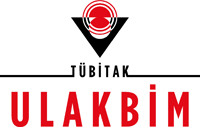AN EMPIRICAL RESEARCH ON THE EFFECT OF INFORMATION SYSTEMS LITERACY ON EMPLOYEES' INTOLERANCE TO UNCERTAINTY
Keywords:
Information Systems Literacy, Intolerance to Uncertainty, Blue and White Collar EmployeesAbstract
The objective of this study is to reveal whether the information systems literacy level differs according to status, gender, education and income status and whether the information systems literacy level affects the intolerance to uncertainty. With the emergence of digital technologies, information literacy is gaining great importance. Today, all businesses have entered the automation process, which includes all components of information technologies. Therefore, information systems literacy and information technology skills are becoming more and more important in today's information society. It is important for organizations to be able to use information technologies to perceive changes and therefore formulate adaptive strategies to deal with uncertainties. Since it is an information-intensive process, information systems literacy skills are required in order to carry out environmental scanning activities effectively and efficiently. The development of information technology and telecommunications has significantly facilitated the access to information and processing and distribution of it. Information systems literacy is a set of skills necessary for a person to find, retrieve, analyze and use information. Today, with the effect of rapidly changing world and living conditions, many future events are accepted as unpredictable by individuals who do not tolerate to uncertainty. Intolerance to uncertainty is an individual's tendency to consider the probability of a negative event occurring as unacceptable, regardless of the probability of its occurring. Uncertainty about future events can lead a person to worry, feel anxiety, or even act to the point of inability. In this context, data were collected from 402 blue- and white-collar employees using the survey technique. The data obtained in the research were analyzed through the SPSS 21 package program. With the analysis done, it was concluded that the information systems literacy levels of the participants differed according to status, education and income status, but did not differ according to gender. The study also revealed that the level of information systems literacy affects the level of intolerance to uncertainty.









